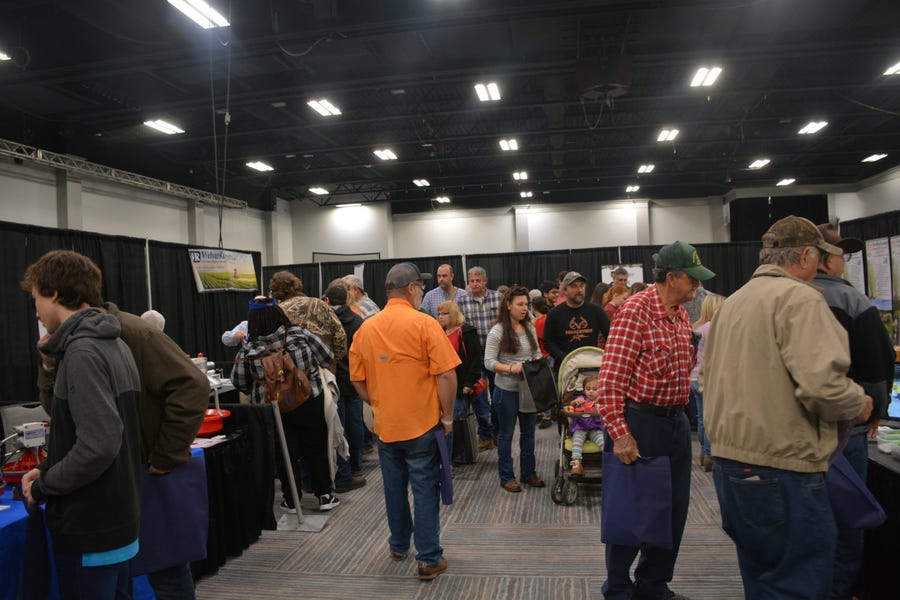
South Carolina Agriculture Commissioner Hugh Weathers summarized industrial hemp quite well when he noted the new industry is experiencing “growing pains and the crop is a pain to grow.”
Speaking at the Industrial Hemp Conference that was part of the SC AgriBiz & Farm Expo in Florence Jan. 15, Weathers said the South Carolina Department of Agriculture takes its responsibility to both regulate and develop the hemp industry in South Carolina very seriously. He stressed that the crop is a challenge to grow and the future is still unknown for industrial hemp in South Carolina.
“Working with the Department of Commerce and others, we are trying to attract investments to come to South Carolina to not only process our hemp, but to do other things to make South Carolina stand out from the 40 other states that have industrial hemp,” Weathers said.
“If we are just one more state growing industrial hemp, I think our chances for success go down. We are trying to do our best to position our products and our farmers in ways the industry knows that if it comes from South Carolina or from a South Carolina grower, you can count on it to be quality. Those things will be necessary to make a difference and to make a profitable enterprise going forward,” Weathers said.
At the hemp conference, Assistant Agriculture Commissioner Derek Underwood provided an update on the status of the hemp industry and gave an overview of the regulations South Carolina farmers must work under if they want to grow the crop.
In 2020, there are no limits for the number of permit holders to grow industrial hemp in South Carolina and there is no limit to acreage in the state, but permit holders do face more regulations in growing the crop than they saw the first two years under the USDA industrial hemp pilot program in 2018 and 2019.
Underwood said SCDA projects there will be 200 to 250 permitted farmers growing industrial hemp on roughly 3,500 acres in South Carolina this year. This is up significantly from 40 permit holders growing industrial hemp on 1,600 acres in 2019 and 20 farmers growing hemp on 400 acres in 2018, the first year hemp was grown in South Carolina.
Underwood emphasized that South Carolina’s state industrial plan must reflect and be accepted by USDA. A key provision of the USDA regulations is that SCDA must have the financial resources to maintain an industrial hemp program in South Carolina.
The cost of SCDA’s regulatory program is estimated at $1.2 million which includes sample collections and salaries for employees. Underwood said the $1,000 mandatory permitting fee for any farmer who grows industrial hemp is used to help pay for regulatory costs.
Sampling and testing of industrial hemp in South Carolina will be a key job of SCDA to make sure the hemp does not go above the.3 percent THC (tetrahydrocannabinol) level.
A new rule this year requires SCDA inspectors to go to each hemp farm and take samples of the crop for chain of custody. In the past, hemp farmers themselves could collect the samples, but Underwood said that has changed this year.
In the testing of the crop, Underwood said the word DEA (Drug Enforcement Administration) now appears in the regulations. If a lab is testing a farmer’s hemp crop for THC, it must be registered with the DEA, which is also a new rule this year.
“If they are testing your crop and that product is above .3 percent THC, that product is no longer hemp, it’s marijuana. It has to be disposed of. You have to register with the DEA to be able to dispose controlled substances,” Underwood said.
Underwood said hemp farmers must remain proactive in ensuring their crop doesn’t climb above the .3 percent THC level. Farmers also need to make sure their seeds and clones they plant are not above .3 percent THC.
“That’s why genetic selection is so important. The language now states if you have .5 percent total three times over a five-year period, you’re considered negligent of the program and you are banned from participating in the program. When you pick your genetics, don’t go by word of mouth, make sure you are getting your seed or your clones from a good source,” Underwood said.

About the Author(s)
You May Also Like






